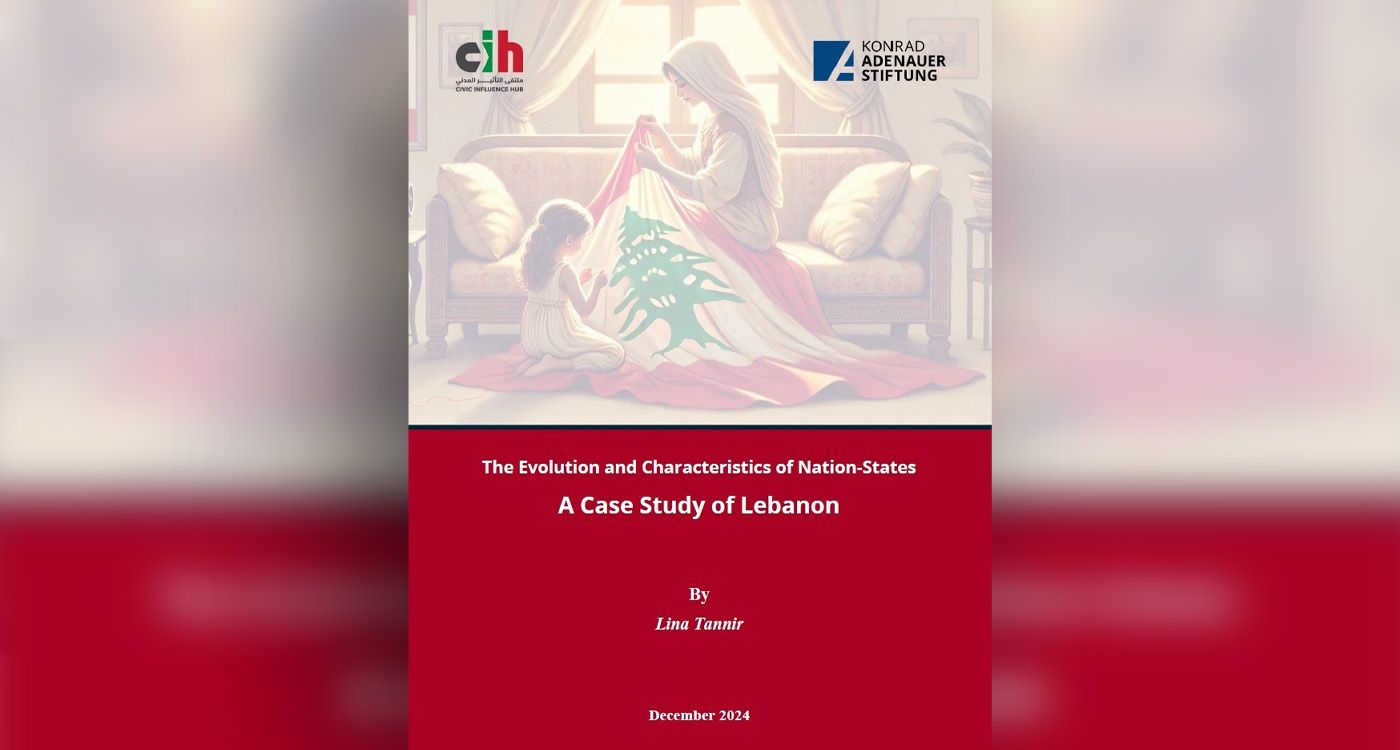
As part of the collaboration between the Civic Influence Hub and the Konrad-Adenauer-Stiftung – Lebanon in the initiative "Lebanon and the Policy Reform Challenges: Towards a Comprehensive Perspective," the two organizations have published a working paper titled "The Evolution and Characteristics of Nation-States: A Case Study of Lebanon’s."
The Policy Brief, authored by Lina Tannir and published in both Arabic and English, states: "Lebanon has a rich cultural heritage and history of ancient civilizations that were significant in maritime trade and cultural exchange. Ancient cities like Byblos, Tyre and Baalbeck are testaments to Lebanon's historical significance and have the potential to foster national pride. Having gone through colonization through the Ottoman empire and French mandate in the mid-20th century, Beirut emerged as a cultural and intellectual hub in the Arab world. Yet, the later part of the 20th century saw the emergence of a series of conflicts, namely the civil war (1975-1990), due to the successive dominance and interference of foreign entities in state affairs.
Lebanon's political and social fabric is woven from a diverse array of religious and ethnic groups, each with its own historical and cultural narrative. This diversity, while a source of cultural richness, has also been a source of tension and conflict. The challenge of reconciling freedom and justice in such a context is central to building a robust citizenship state. This paper posits that a multidimensional and inclusive approach is essential for achieving this reconciliation, taking into account Lebanon's historical, social and political heritage and addressing, economic, environmental and cultural challenges."
The author identified the challenges as: “Political crisis, Economic Instability, Financial Crisis, Refugee Crisis, Social dynamics, Legal and Institutional Frameworks, Environmental Degradation and Public Health.” The opportunities, as outlined by the author, include: “Educational Sector, Preservation of Liberty, Regional Stability, Diaspora Engagement, International Support.”
The author concluded: “The evolution of the nation-state is a complex interplay of historical, cultural, social and economic factors. Lebanon's unique experiences highlight the resilience and adaptability required to navigate the challenges of nation-building. By strengthening solidarity, reaffirming present consent, preserving liberty and pursuing inclusive and diversified development strategies, Lebanon can continue to build a stable and prosperous future. By focusing on shared goals and leveraging the strengths of its diverse communities, Lebanon can navigate its challenges and seize opportunities in a changing world. This approach not only enhances the nation-state but also builds a more resilient and cohesive society.”




Comments